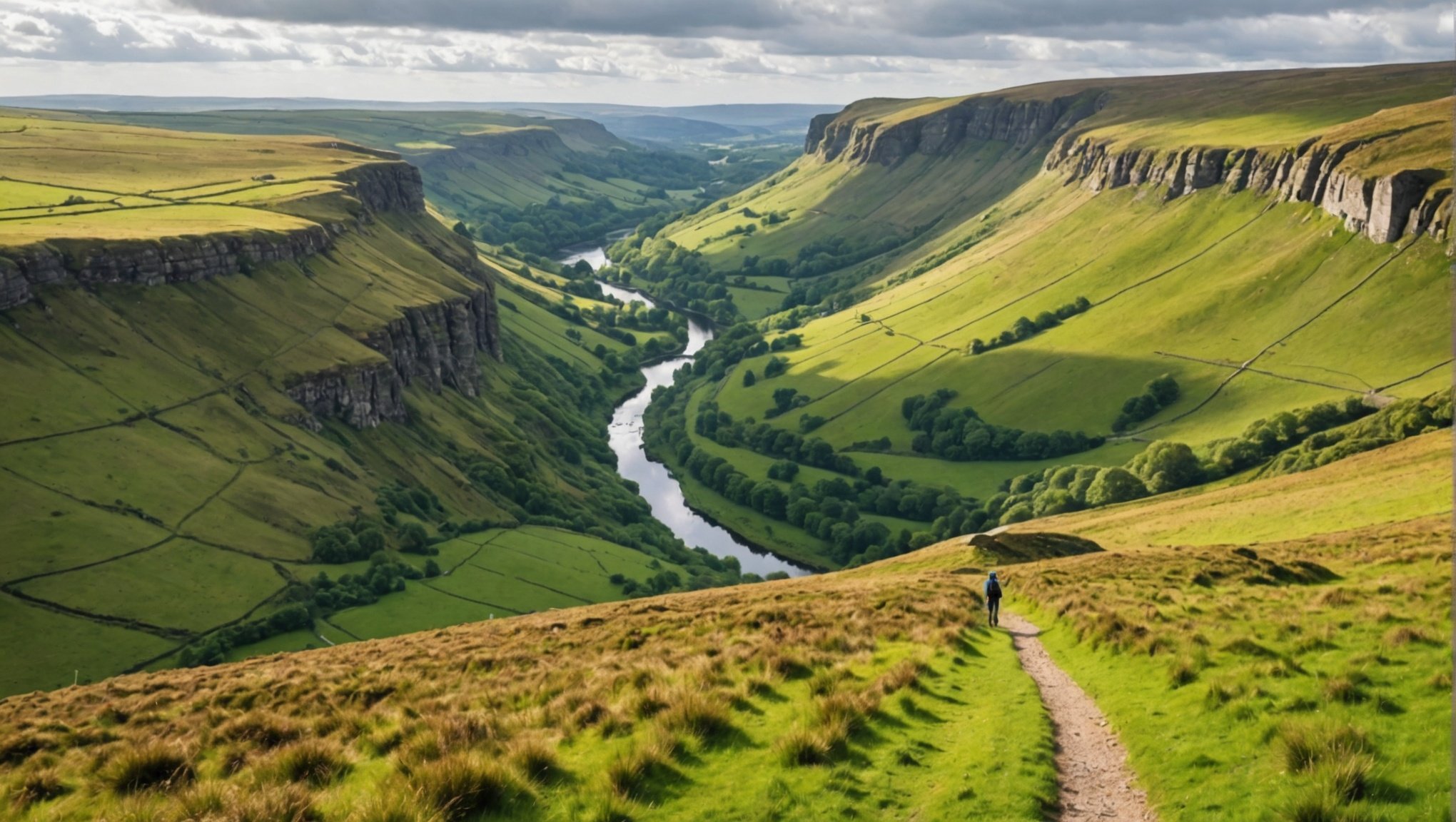Looking to blend your love of hiking with eco-conscious practices? The Peak District, with its stunning landscapes and rich biodiversity, offers the perfect playground for environmentally aware adventurers. This guide unveils essential tips for planning a hiking adventure that minimizes your environmental footprint while maximizing enjoyment. Discover sustainable trails, gear choices, and local conservation efforts, ensuring your experiences contribute positively to this beautiful region. Forge a connection with nature while being an ethical explorer—your next hiking adventure awaits!
Eco-Conscious Hiking Principles
Embracing eco-friendly hiking is essential for preserving natural beauty and ensuring that trails remain accessible for future generations. Understanding the core principles of sustainable practices helps hikers minimise their environmental impact while enjoying the great outdoors.
In the same genre : Discover the Ultimate Guide to Savoring London”s Finest British Street Food
One of the most crucial aspects of eco-conscious hiking is the importance of minimising footprints. This involves staying on designated paths to protect fragile ecosystems and avoiding the disturbance of wildlife. By doing so, hikers contribute to the preservation of biodiversity and the health of natural habitats.
Practical tips for sustainable outdoor practices include:
Topic to read : Uncovering Edinburgh”s Hidden Gems: The Ultimate Guide to Traditional Scottish Music Venues
- Pack it in, pack it out: Ensure that all waste, including food scraps and packaging, is carried out. This prevents pollution and reduces harm to wildlife.
- Use reusable water bottles and containers to cut down on single-use plastics.
- Choose eco-friendly gear made from sustainable materials to further reduce your carbon footprint.
By incorporating these practices, hikers can significantly reduce their environmental impact. The commitment to eco-friendly hiking not only protects the environment but also enriches the hiking experience by fostering a deeper connection with nature. This sustainable approach ensures that trails remain vibrant and enjoyable for all.
Best Eco-Friendly Hiking Trails in the Peak District
Exploring the Peak District offers a unique opportunity to enjoy some of the best eco-friendly trails in the region. These trails not only provide breathtaking views but also promote sustainable hiking practices.
One of the top Peak District hiking trails is the Monsal Trail. This trail is a favourite among nature enthusiasts due to its rich biodiversity and stunning limestone dales. The trail is accessible for all skill levels, featuring a well-maintained path that is perfect for beginners and families.
Another noteworthy route is the Kinder Scout trail. Known for its rugged beauty and challenging terrain, this trail is ideal for experienced hikers seeking adventure. Its environmental significance lies in its peat bogs, which play a crucial role in carbon storage and habitat preservation.
For those looking for a less strenuous option, the Tissington Trail offers a gentle walk through picturesque countryside. This former railway line is now a haven for wildlife, making it a perfect choice for eco-conscious hikers.
Each of these eco-friendly trails provides a unique experience while ensuring minimal environmental impact. Hikers are encouraged to respect the natural surroundings and adhere to sustainable practices to preserve these beautiful landscapes for future generations.
Sustainable Gear and Equipment for Hiking
Choosing the right sustainable hiking gear is crucial for eco-conscious adventurers. Opting for eco-conscious equipment not only benefits the environment but also enhances your hiking experience.
When selecting responsible outdoor gear, prioritise items made from sustainable materials. Look for products crafted from recycled or organic materials, such as backpacks made from recycled plastics or clothing from organic cotton. These choices help reduce your carbon footprint and support environmentally-friendly production practices.
It's essential to consider durability when purchasing gear. High-quality items may cost more initially, but they last longer, reducing the frequency of replacements. This approach aligns with sustainable principles by minimising waste.
Maintaining your equipment is just as important as choosing it. Regularly clean and repair your gear to extend its lifespan. Simple actions, such as waterproofing boots or patching holes in jackets, can significantly prolong usability.
Recycling gear is another vital aspect of responsible outdoor practices. Many brands offer recycling programs for old gear. Participating in these initiatives ensures that materials are repurposed rather than ending up in landfills.
By investing in sustainable hiking gear, you make a positive impact on the environment while enjoying the beauty of nature responsibly.
Local Flora and Fauna Conservation
The Peak District is a haven for diverse wildlife and native plant species, making it a treasured destination for nature enthusiasts. The region's unique ecosystems support a variety of flora, such as heather moorlands, and fauna, including red deer and peregrine falcons. These species contribute to the area's rich biodiversity and offer hikers a chance to witness nature's splendour.
Conservation efforts play a vital role in preserving the Peak District's natural heritage. Initiatives focus on habitat restoration, protection of endangered species, and sustainable land management. These efforts not only safeguard the environment but also enhance the hiking experience by maintaining the natural beauty and ecological balance of the area.
When observing wildlife, hikers should practice responsible behaviour to minimise disturbance. This includes maintaining a safe distance, avoiding feeding animals, and staying on designated paths to protect fragile habitats. Such practices ensure that interactions with wildlife remain respectful and non-intrusive.
By understanding and respecting the conservation efforts in place, hikers can enjoy the Peak District's stunning landscapes while contributing to the preservation of its flora and fauna. This mindful approach fosters a harmonious relationship between humans and nature, ensuring the region's vitality for future generations.
Conservation Organizations and Initiatives
The Peak District conservation landscape is vibrant, with numerous environmental organizations dedicated to preserving its natural beauty. These groups play a crucial role in safeguarding the region's unique ecosystems and biodiversity.
One prominent organization is the Peak District National Park Authority, which focuses on sustainable land management and habitat restoration. Their efforts include protecting endangered species and promoting eco-friendly tourism. Another key player is the Derbyshire Wildlife Trust, committed to conserving local wildlife through education and habitat protection.
Local initiatives offer various volunteer opportunities for those eager to contribute. By participating, volunteers can engage in activities such as tree planting, habitat restoration, and wildlife monitoring. These efforts not only enhance the environment but also foster a sense of community and shared responsibility.
The impact of community involvement in preserving the Peak District is significant. Through collective action, these initiatives help maintain the area's ecological balance, ensuring that its landscapes remain vibrant and accessible for future generations. Engaging with these organizations allows individuals to make a tangible difference, supporting the ongoing conservation of this treasured region.
Tips for Reducing Your Hiking Footprint
When embarking on a hiking adventure, it's essential to focus on hiking footprint reduction to ensure the preservation of natural landscapes. Adhering to the Leave No Trace principles is a fundamental step in responsible hiking practices. These principles guide hikers in minimising their impact on the environment, ensuring that trails remain pristine for others to enjoy.
Leave No Trace principles include:
- Plan ahead and prepare: Research the area and pack appropriately to avoid unnecessary waste.
- Travel and camp on durable surfaces: Stick to established trails and campsites to protect fragile ecosystems.
- Dispose of waste properly: Carry out all trash, leftover food, and litter to prevent pollution.
To further minimise your impact, consider practical tips such as using biodegradable soap and repackaging food into reusable containers. These small adjustments can significantly reduce waste and help preserve nature.
Educating fellow hikers about eco-conscious practices is equally important. Share knowledge on responsible hiking practices and encourage others to follow suit. By fostering a community of environmentally aware hikers, we can collectively reduce our impact on nature.
Remember, each step taken with care contributes to the protection of our beautiful landscapes, ensuring they remain vibrant and accessible for future generations.














